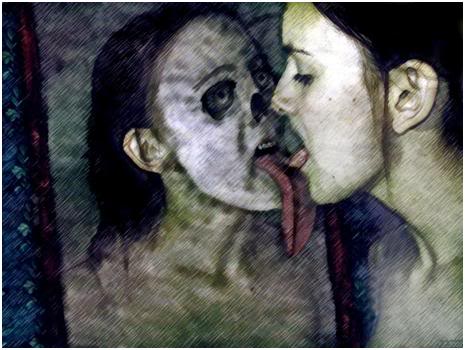 By Mike Darwin
By Mike Darwin
A short while ago the comment appeared on a medical list serve where I post in response to the article “Going, Going, Gone…” which appeared here on Chronosphere about brain aging and the need to develop effective strategies to halt and reverse it. (http://chronopause.com/index.php/2011/05/30/going-going-gone/, http://chronopause.com/index.php/2011/05/31/going-going-gone%E2%80%A6-part-2/, http://chronopause.com/index.php/2011/05/31/going-going-gone-part-3/):
“This is really depressing. I am 58 years old and still trying to “learn” a number of things. It does explain that I have to really work at what comes easy to my kids (25 – 35yrs old). I can stay on top of computer and tech stuff just by working at it a bit. The real drop has already hit in music. I started back playing music at 50 and although practice a lot and absolutely love to play, I can see that I need the lyrics, chord progression and such even for old songs that I played 35 – 40 years ago.
I’m in a new job and out of critical care on a day to day basis. Again, I see the slippage. I have to work really hard to keep up with the changing literature, new drugs, and details of mechanisms of action etc.
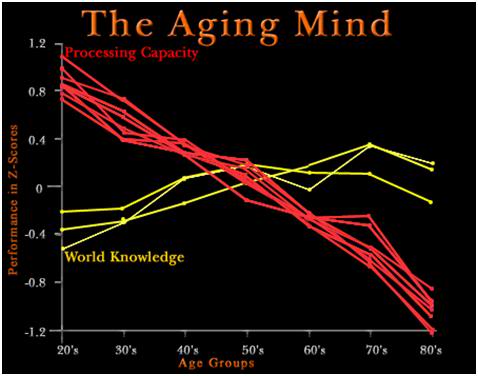
So now I read it doesn’t matter, and my brain is already 50% fried – perhaps more.
On a slow decline with increasing speed into the twilight of existence.. Not a pretty thought.
R.A.”
What follows was my response. I wish I could have been more specific, more positive and more activist in my response. However, past experience has shown it would do no good to suggest that support be given to cryonics, or to interventive gerontology research. It is not possible to reach people in this community in that way. Sadly, all that can be done is to raise awareness in the younger readers of such lists, often at the expense of considerable emotional discomfort to the older ones. This approach isn’t particularly just, but I see no alternative. Thus, I am very much hoping for insights from others who will read this here and perhaps be able to suggest how to take sparking awareness of impending death and decay into something more immediately productive:
Incredible! And I’m not being either snide or cruel here; finally somebody get’s it!
What I’ve been trying to say for a decade and half here on this list serve (and much longer elsewhere) is that medical progress to date has been both relatively and, in an absolute sense, illusory. And history will record it as such, and you will be just another sad, anonymous and forgotten statistic.
 Figure 1: Sir Astley Cooper (1768 –1841).
Figure 1: Sir Astley Cooper (1768 –1841).
In the past, people died very young and mostly “functionally old” (i.e., in their 60s and 70s). They died en masse of infectious disease, they died as children and young adults. They died horribly. An excellent and very worthwhile read is the new biography of Sir Astley Cooper, Digging Up the Dead:Uncovering the Life and Times of an Extraordinary Surgeon (ISBN-10: 1845950135). I am a hardened SOB, long exposed to animal research and human suffering in the clinic, and I had to put that book down at several points, because it upset me too much to read on. Life for the sick and dying was worse than I had imagined; and I am a serious student of medical history. Life for experimental animals was unspeakable.
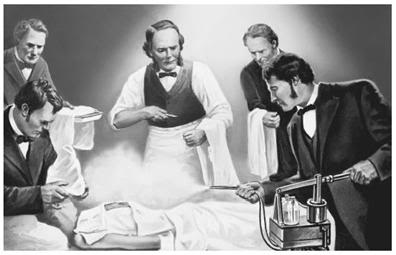 Figure 2: Today we have antisepsis, anesthesia, and injectable pain killers. Medical and dying have been made seemingly more palatable. But are they, really?
Figure 2: Today we have antisepsis, anesthesia, and injectable pain killers. Medical and dying have been made seemingly more palatable. But are they, really?
Now we have antisepsis, anesthesia, parenteral pain killers, effective anxieolytics…life is better, right (Figure 2)? Well, both relatively and absolutely, I suppose that’s true – but much depends on what you want and expect from life. The fact is that most people were just as content to suffer and die in 1760 as in 1960 or in 2011. They did so in more pain, but they had some advantages we don’t; namely they almost always remained cognitively intact, and they had a more credible and matter fact belief in religion and a well specified afterlife that was both eternal, and included friends and loved ones.
 Figure 3: Then and now: At left above, a tuberculosis (TB) ward in the late 19th or early 20th century was a place fear, loneliness and often little or no hope. A contemporary nursing home (above, right) is little different, except that the people dying there are, on average 30 or 40 years older and they, unlike the TB patients of the previous centuries, know with certainty that for them there will be no escape.
Figure 3: Then and now: At left above, a tuberculosis (TB) ward in the late 19th or early 20th century was a place fear, loneliness and often little or no hope. A contemporary nursing home (above, right) is little different, except that the people dying there are, on average 30 or 40 years older and they, unlike the TB patients of the previous centuries, know with certainty that for them there will be no escape.
Today, you stand a very good chance of being demented if you live long enough – sometimes pleasantly so – mostly not. In 1760 people simply denied their basic condition. They didn’t think about it and mostly they didn’t look at it. Just consider the current to-do about Betty Ford making breast cancer a “de-stigmatized” illness. When I was a child, people whispered the word cancer, and all kinds of people died of it without any acknowledgement that that was what was what was happening. There was near complete denial. That is exactly as it was with TB, and other horrors as bad or worse, right into the first half of the 20th century. The situation was too horrible to be “looked at in eyes.”
Consider nursing homes and the cognitive and other functional declines of aging today (Figure 3). We simply refuse to see the magnitude of the horror. We refuse to see it. If we could honestly be objective about it, it we would be not just depressing, it would be terrifying. It turns out we have a deeply embedded psychological defense called “terror management” that kicks in to prevent us from being objective and seeing our situation. This is useful, because we’d be even crazier than we already are, if it were not present. The cultural anthropologist Ernest Becker came to a similar conclusion in his brilliant book, The Denial of Death (ISBN 0-02-902310-6).
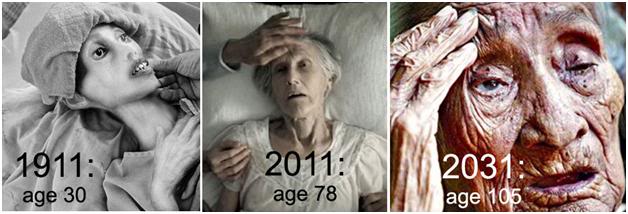 Figure 4: Death is death; the end result is the same; non-existence and oblivion. It is also an illusion that the horror and suffering are really less today than they were yesterday, or will be tomorrow. If anything, extension of the mean lifespan in the absence of regenerative and rejuvenating medicine extends the period of suffering and increases the terror. The average lifespan of a patient with Alzheimer’s disease is 8 years from diagnosis to death. More people are interned in extended care facilities today than were ever imprisoned at Auschwitz, Dachau, or all the Nazi concentration camps combined. And unlike many patients dying from infectious disease in the previous centuries, patients in nursing homes and care facilities (if they are not demented) know that for them there is no hope of escape. That is a condition that even the Nazis never managed to uniformly impose on their victims.
Figure 4: Death is death; the end result is the same; non-existence and oblivion. It is also an illusion that the horror and suffering are really less today than they were yesterday, or will be tomorrow. If anything, extension of the mean lifespan in the absence of regenerative and rejuvenating medicine extends the period of suffering and increases the terror. The average lifespan of a patient with Alzheimer’s disease is 8 years from diagnosis to death. More people are interned in extended care facilities today than were ever imprisoned at Auschwitz, Dachau, or all the Nazi concentration camps combined. And unlike many patients dying from infectious disease in the previous centuries, patients in nursing homes and care facilities (if they are not demented) know that for them there is no hope of escape. That is a condition that even the Nazis never managed to uniformly impose on their victims.
We can look at the early and pre-20th century world and shudder, whilst briefly considering it, because we can see the horrors and appreciate the impossible magnitude of the suffering. We are now distant from that, and our situation is “better.” And, in some ways, it is. We do live longer, and early mortality is largely gone. People get to see their grandchildren and often their great grandchildren. But, they still die horribly, depending upon your definition of horrible. If your brain and abilities and body decaying and falling to ruin is acceptable to you and considered inevitable, then there has been a huge absolute improvement in the human condition. Ideally, You might indeed get to be Jane Fonda or Cher, instead of the hobbling, nearly blind, pain-ridden old people that you may remember from your childhood. That’s good, but it is only a delay; you will get to the bad part and it will be sooner, rather than later (Figure 4). As Cicero said, “Nothing that has end is long.”
Figure 5: The Singularity is I fear, not near.
 I don’t believe in any magical technological Singularity where we will all wake up someday soon; both immortal and in utopia.
I don’t believe in any magical technological Singularity where we will all wake up someday soon; both immortal and in utopia.
Bullshit.
The best you can hope for is that medicine reaches the same pace of advance now present in consumer electronics, where every device you buy (literally) is in the trash 2 years later – I just yesterday brought home an ENVISION 19″ flat screen monitor, thoughtfully returned to its original box before being pitched in the trash. But, that isn’t likely to happen in medicine, because we aren’t fault-tolerant in developing new technologies in that area, and we can’t relentlessly experiment on the marketplace (human beings) with the same abandon the makers of iPads, printers, and MP3 players do. So, it will be a long, hard, slow slog.
And again, for those who have already accepted and comfortably surrendered much of their youthful capability, aging and death aren’t so bad. However, be aware that a lot of that acceptance is because of terror management and the fact that what is really happening is hidden from you until someone like me rubs your nose in it; for which I will no doubt be punished severely.
This is your reality and mine, and no one escapes it:
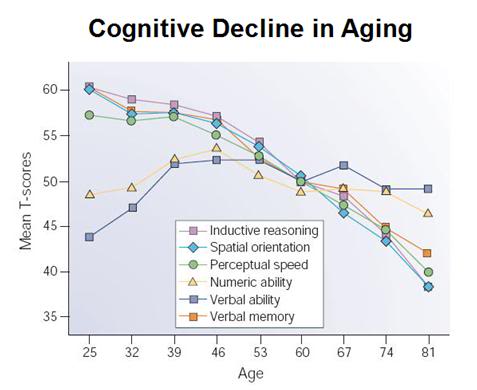
Figure 6: Loss of cognitive capabilities is universal; no man or woman who lives past their teenage years escapes them. The graph above shows the average rate of cognitive decline in humans. Two cognitive functions, verbal ability and numeric ability, show improvement in the middle decades of life as a result of accumulated life experience.
If we survive as a both a humane and a technologically sophisticated species, there will come a time in the not too distant future, when people will not grow old and die as we do. They will have other problems, most of which we can’t even guess at. And it won’t be utopia; any more than your life with computers and the Internet is utopia today. But rest assured, it will be vastly better than the life you are leading and losing now. And those people will look back on this time and they will shake their heads, and they will turn away when they can, and when they can’t, they will weep.
But they will NOT weep for you. They will weep for the whole sordid situation that was the human condition in the first decades of the 21st century. They won’t weep for you because you will be forgotten – utterly and completely forgotten as the person you were – even if you are Cher, or the best, the richest, and the most famous surgeon of your day, as was Astley Cooper. And who really remembers him?
In London, the inevitable has happened and the cemeteries, too expensive to maintain, are being abandoned to become urban wilderness preserves; the tress are growing up, the tombstones being overturned and buried, and in another 50 years it will all be a dim memory (Figure 7).
Your death will make as much, or more accurately, as little sense as the deaths of all those anonymous souls who coughed their lungs out a bit at a time from TB. Keats and Poe: yes their deaths from TB are remembered, as are their works. But they are not remembered. And here, here is the final and most important insight I can try to communicate: only you can remember yourself. And when you are dead you are, in fact, gone and gone forever. And no one will be able to, no matter how much they would like to (and mostly they wouldn’t), remember you. That is the central and ultimate tragedy in your life and the universe doesn’t give a damn. Blind evolution “made” you and it will just as blindly and uncaringly kill you. It will do so without malice and without “intent.” It doesn’t care because it can’t – anymore than a TB bacillus could care about the death of Keats, or Poe, or Chopin.
 Figure 7: No marker or monument endures and no man’s life, let alone his personal identity, can be written down on paper in words.
Figure 7: No marker or monument endures and no man’s life, let alone his personal identity, can be written down on paper in words.
Either you understand that, or you don’t. If you do understand it, then either you face it and decide to fight, or you decide to turn away and accept oblivion. That is a highly personal decision. But I would caution you that if you choose to join the ranks of the dead, rather than fight to stay amongst the living, sooner, much sooner rather than later, nobody will give a damn, or even remember who you were – beyond a name on a genealogy chart, or perhaps a brief biography Or if you are both extraordinary and lucky (or in reality, both), maybe even a book-length biography. If 250 or 350 or 650 pages of print is who you think you are, and all you think you or are, or even just the most important part of who you are, well then, your fate is sealed, even if it is not just.
We do not now inhabit a just world and it will a long while, if ever, before we do.
